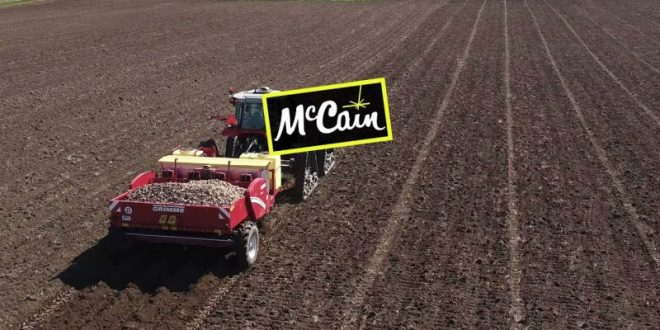McCain Foods Limited has announced plans for a second Farm of the Future in South Africa as part of its efforts to reduce carbon emissions and address the effects of climate change. The company has found two South African locations totaling 465 ha irrigation and 90 ha dryland on which the enterprise will grow 125 ha potatoes per year.
The farm’s focus will be on increasing productivity while prioritizing soil health, and water efficiency, reducing agrochemical impacts and introducing and preserving biodiversity.
All of the potatoes grown on Farm of the Future Africa will be made into French fries and other frozen potato products, servicing consumers across Africa.
This follows the announcement last year of the first Farm of the Future location in Florenceville, New Brunswick, Canada.
McCain plans to open three Farms of the Future in different growing regions around the world by 2025. It is all part of a global commitment to implement regenerative agriculture across 100% of its potato acreage by 2030.
“This is a critical moment. The strain that global supply chains are under right now is shining a stark light on how exposed we are, with a food system that requires a radical transformation to address the challenges of our century,” McCain CEO Max Koeune said. “If we don’t change the way we farm, feeding the world in 30 years will require an 87% increase in carbon emissions. The implications of that are bleak – and we cannot allow it to happen. Farmers are on the front line here – they see the impacts every day, with extreme weather wreaking havoc on the growing season. Working collaboratively, we believe this transformation will ensure both McCain and our farmers will have a business for generations to come.”
At Farm of the Future Africa, the potential to grow multiple crops per year, innovate with irrigation technology in a water-scarce region as well as the challenges arising from the presence of soil-borne pests and diseases make it the ideal location for transferring learning to other parts of the world, including China, India, Australia, New Zealand, Argentina, Brazil, and Colombia.







